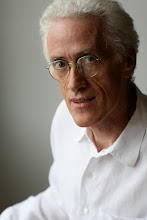Steve Martin has a memorable quote that has stuck with me like glue since reading his book 'Born Standing Up', mostly because it echoes so completely my own ideology...
"Be so good they can't ignore you!”
Quality control and the music business have never been routine bedfellows. Often for good reason, as some of the most outstanding tracks of the last 50 years of contemporary pop music originated out of little more than errors, stumbles, naivety and ignorance.
Of course, for every one of those accidental, yet undeniable, moments there are a thousand others that lay in the trash-cans of half-hearted, misguided or just plain 'empty' attempts. But enough gems that should, in theory, never have been allowed out of a 'professional' recording studio on the basis of their writing, arranging, performing or recording, have found an audience.
The premise of being that good is a million miles away from the typical mindset behind the beginnings of any new song written by the vast majority of would-be songwriters (in fact, most 'professionals' too).
Why?… because, with the downfall of the major record labels, the particular baby that went out with that bath-water was the A & R man.
The Artist and Repertoire figure was originally, exactly that…. someone who signed the Artist based on not just discovery, but far more importantly, long-term fostering and guidance... at the same time as selecting, discovering and/or commissioning their upcoming Repertoire… songs.
The primary duty of the A & R man was to help the artist find great songs to sing... and then as singer-songwriters and self-writing bands developed their own composing & lyrical skills, the A & R man would offer the artist/writer an objective opinion, critique... along with suggestions for further and different collaborations (often in cahoots with the writer’s publishers).
Primarily though, they became the all important first-stage filter for the artist’s ideas. If the idea was not good enough, the worthwhile A & R man would have alternative suggestions at the ready, and the people-skills to implement them.
As the hey-day of creative music ‘editorial’ shows - Warner Bros in Los Angeles in the 70s housed an incredibly impressive array of A & R men who, un-typically, were also top Record Producers of their day...people like Lenny Waronker, Russ Titleman and Ted Templeman. Between them they signed and/or coached (A & R’ed) the likes of Randy Newman, Joni Mitchell, Jackson Browne, The Doobie Bros, Van Morrison, America, Little Feat, Van Halen, Little Feat, James Taylor, Bonnie Raitt, Alice Cooper and Rickie Lee Jones
But now here we are in the 3rd Millennium… new young artists with no guidance at all. Their young healthy egos with no critique, no wall to bounce their ideas off. No negative, albeit constructive, assaults to defend their new works against. As I have mentioned often in my Workshops, it is well-known and understood widely that if you are a budding author, you must first find a book-publisher who, whilst being already sympathetic to your general writing direction, will highlight weak points, character flaws, plot holes and confused structure in an effort to strengthen the book as a whole and aid the author’s ability to express both their primary points and their sub-text. In the book world it is not only common, but generally considered essential - from both the author and the publisher’s perspective.
It would appear that at this time, the 4 minute song does not demand such evaluation, such study and critique. Apparently it either works for the listener or it doesn’t… there is, after all, so much choice out there on the fabulous InterWeb! Why bother fashioning one sole gem? Polishing every facet of one single jewel? It’s only a pop song!
But then listen to Paul Simon’s “The Only Living Boy in New York” - Brian Wilson’s “God Only Knows” (I mean really close your eyes and listen... 100%) or Imogen Heap’s “Hide and Seek”.
These jewels contain every aspect of brilliance in pop music. Firstly a great song made up of clear powerful ideas expressed in finely tuned lyrics and beautiful melodies; orchestrated with thoughtful arrangements both original and expressive in both the biggest picture and the minutest detail; produced by a mind with an equally clear vision that recognised when it was enough, not too much and beautifully balanced in every sense.
I am about to start a new ‘entity’ that will collect the best examples of the first of these ingredients. That is the song that is shooting for this level of excellence; from writers who may be unknown to those with experience but no wish to be lost in Major label-land (what’s left of it) anymore, or those that do not want to remain equally lost in Internet Wasteland. The mechanism will be announced shortly here.
 I went to the movies yesterday to see "The Help". Beautifully interpreted from the book, I had been told. But it was sold-out.
I went to the movies yesterday to see "The Help". Beautifully interpreted from the book, I had been told. But it was sold-out.



